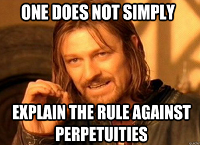
Coyote Springs Inv. v. Eighth Jud. Dist. Ct. (Nev. Supreme Ct. – Apr. 2, 2015)
The issue is whether a private communication between a witness and an attorney during a requested break in the witness’s deposition is entitled to protection from discovery under the attorney-client privilege.
Coyote Springs sued BrightSource, arguing that a lease’s termination was ineffective without payment of the termination fee. In preparation for trial, the parties deposed Whittemore, the former co-owner and manager of Coyote Springs. Whittemore testified that he and Coyote Springs’ general counsel, Cargill, negotiated the lease for Coyote Springs. Whittemore’s deposition was continued and resumed nearly six months later, and BrightSource’s counsel further questioned Whittemore about his approval of term sheets and the lease summary. After BrightSource’s counsel completed this round of questioning, Coyote Springs’ litigation counsel suggested taking a break and requested a conference room for him, Whittemore, and Cargill. BrightSource’s counsel objected to any discussion during the break regarding questions that Whittemore had been asked. Coyote Springs’ litigation counsel and Cargill then met with Whittemore in a conference room.
Following Whittemore’s depositions, BrightSource filed a motion in limine to exclude Whittemore’s post-conference testimony and to “elicit at trial the substance of what was said during the private conference.” At a hearing on the motion, the district court concluded that “in general. . . you can’t do your witness prep during breaks” and explained that “if [Whittemore] talk[ed] about it at a deposition break and it wasn’t part of his preparation that was done ahead of time, it may be fair game” for inquiry.
At the close of BrightSource’s case, Coyote Springs made an oral motion for reconsideration of the Whittemore deposition issue. The district court denied the oral motion at the time, but the judge stated that she would reconsider after hearing closing arguments. The court stayed the entry of its findings of fact and conclusions of law pending resolution of the Coyote Springs’ petition.
Coyote Springs argued that writ relief was warranted because its attorney-client privilege was not waived when its witness and its counsel had privileged communications during a deposition break. BrightSource asserted that the private conference with Whittemore was not privileged because there was discussion about Whittemore’s substantive testimony in order to prepare him for examination or to refresh his recollection.
The Nevada Supreme Court found that Coyote Springs’ record of the deposition conference was insufficient to show that the communication was privileged. Specifically, the Court held that attorneys may confer with witnesses during an unrequested recess or break in a discovery deposition. The Court also held that attorneys may not request a break to confer with witnesses in a discovery deposition unless the purpose of the break is to determine whether to assert a privilege. The Court additionally held that once the deposition proceedings resume after a private conference that is requested to determine whether to assert a privilege, the attorney must place the following on the record: (1) the fact that a conference took place; (2) the subject of the conference; and (3) the result of the conference, specifically, the outcome of the decision whether to assert a privilege. The Court stressed that counsel must make a record of the confidential communications promptly after the deposition resumes in order to preserve the attorney-client privilege.
Thus, the Court found that the communications between Whittemore and Coyote Springs’ counsel during the break in Whittemore’s deposition were not privileged because Coyote Springs requested a break in the proceedings, failed to make a record of the result reached in the conference, and failed to make a prompt record of the communications.






